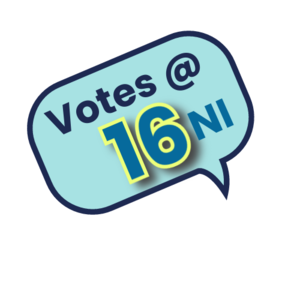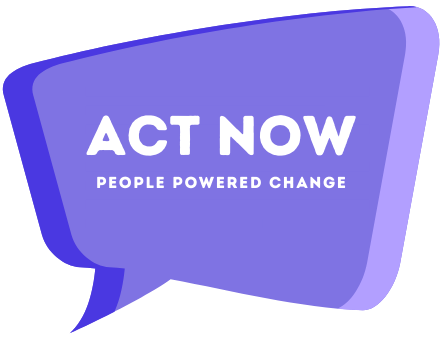1,000 signatures reached
To: Northern Ireland Executive
Lower the voting age to 16 years old in Northern Ireland!

Allowing more young people to participate in electoral politics will transform our democracy for the better. Wales and Scotland involve and recognise how valuable young people's voices are in elections and it is time Northern Ireland follows suit!
Following the General Election, we want the Northern Ireland Executive to write to Westminster - asking for the necessary powers to be devolved in order to legislate for Votes at 16. It is essential that the right to vote at 16 is accompanied by high quality political education in schools and youth settings.
It's time to include young people in the political decisions that affect them by lowering the voting age to 16.
It's time to include young people in the political decisions that affect them by lowering the voting age to 16.
Why is this important?
Young people across the UK and Ireland currently live in an electoral postcode lottery.
16 and 17 year olds in Scotland and Wales are allowed to vote in local and Parliamentary elections, while their peers in Northern Ireland cannot.
Scotland and Wales join a host of other nations across the world which have chosen to extend voting rights to their young citizens, including:
16 and 17 year olds in Scotland and Wales are allowed to vote in local and Parliamentary elections, while their peers in Northern Ireland cannot.
Scotland and Wales join a host of other nations across the world which have chosen to extend voting rights to their young citizens, including:
- Austria
- Brazil
- Cuba
- Ecuador
- Parts of Germany
- Greece
- Malta
- Nicaragua, and more!
Young people living in Northern Ireland feel disenfranchised and unsupported by our political system. Lowering the voting age to 16 will give our young people a democratic voice, ensuring that their voices can be heard on the issues that matter to them.
Why now?
Recent comments by Labour leader Sir Keir Starmer in support of votes at 16 have sparked some heated public debate on the issue. Many of the arguments put forward have been based on assumptions about young people's behaviour, maturity and competence. But we no longer need to rely on assumptions - we can look at the international evidence!
- Young people are capable and engaged - when faced with situations that require unhurried, deliberate consideration - 'cold cognition' - 16 year olds demonstrate judgement as mature as that of adults. In the weeks and months before an election, young people have time to use their cold cognition skills, gathering evidence and talking to their friends, family and peers before making an informed decision.
- Many young people are political activists and campaigners - globally and locally, 16 and 17 year olds have campaigned for climate action, better mental health services, RSE and much more.
- Young people have minds of their own - it's true that in most European countries, young people tend to support left-leaning parties in higher numbers than adults. But just like adults, young people hold a range of views and opinions from across the political spectrum (see trends in Austria, Germany and Scotland)
- Younger voters are lifelong voters - at age 18, many young people are in a transitional phase of life - leaving school, starting uni or work, moving out of the family home or their hometown. They might not be familiar with local issues and candidates, or with voting registration systems and requirements. These conditions can dampen rates of voter turnout. But at the ages of 16 and 17, young people are more likely to in environments with strong socialisation influences, like the family home and school. Evidence from Scotland shows that when they are given the right to vote, 16 and 17 year olds turn out in greater numbers than those aged 18 - 24!
- Respect for fairness and equality - young people aren't just citizens of the future - they're full and equal citizens now! At the age of 16, young people in NI can work, pay taxes, provide care for loved ones, get married and serve in the Armed Forces. They're an active and valuable part of society - why shouldn't they have a say in how things are governed?
The importance of education
When 16 and 17 year olds are granted the right to vote in Northern Ireland, it is vital that this is accompanied by plans to develop high-quality civic education. Deliberative political literacy education can help to mitigate inequalities in political knowledge, confidence and participation from the earliest possible stages. Schools and youth organisations have a crucial role to play in empowering, supporting and encouraging young people to engage meaningfully with politics.
Credit for Image: Bulat Silvia
.png)
